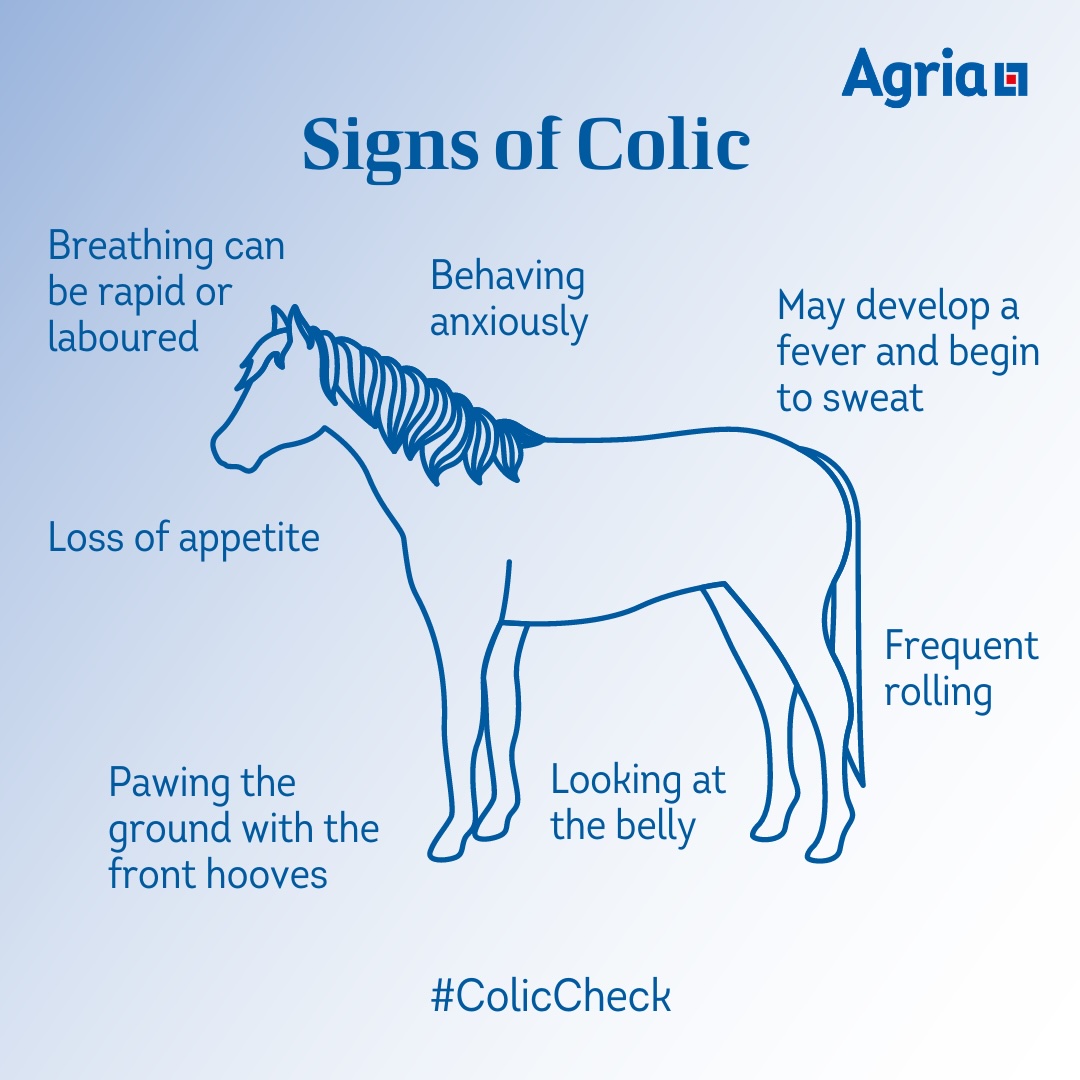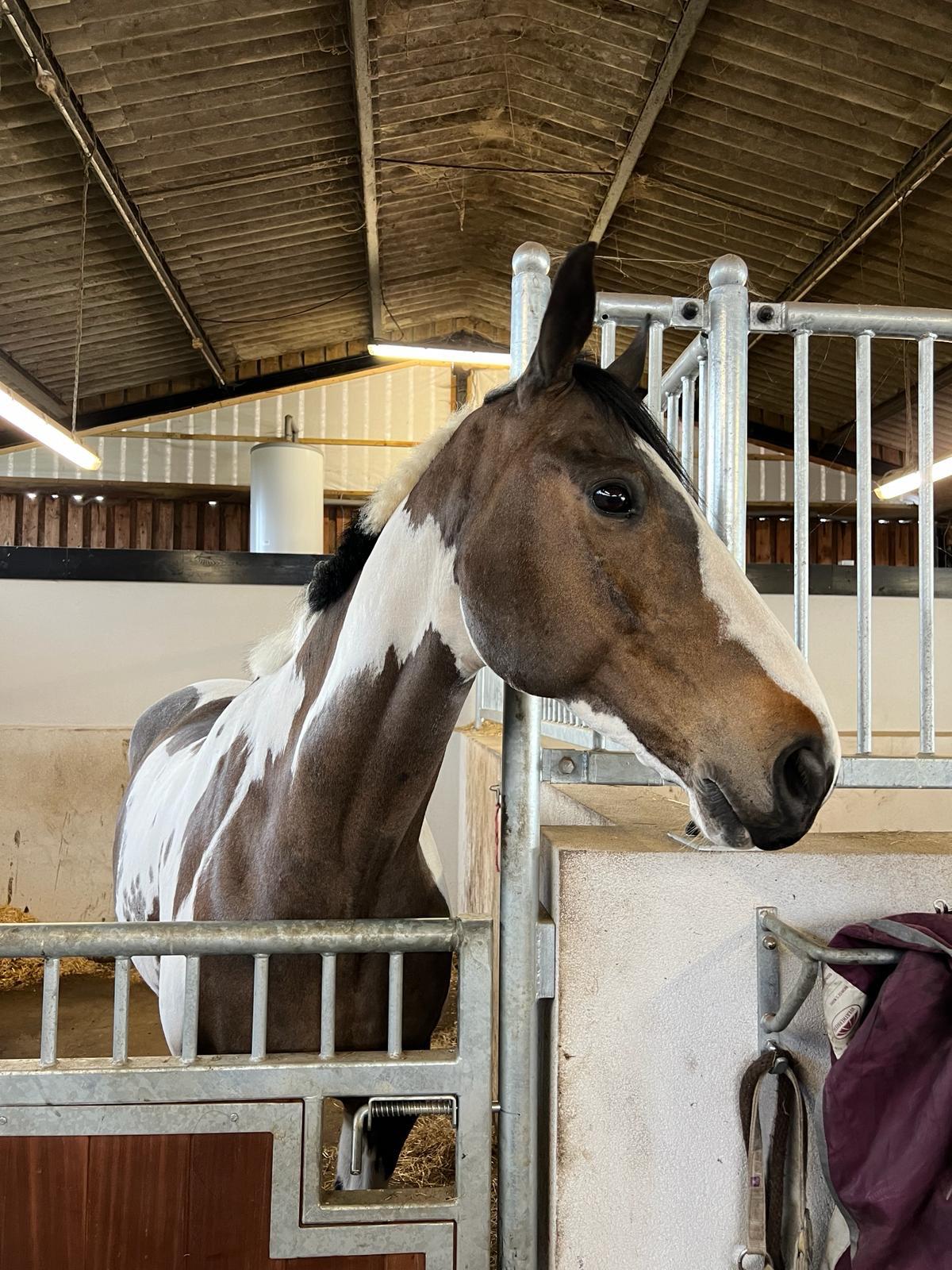Posted: 16th May 2024 | Back to news feed


Agria Equine is this month shining a spotlight on the prevalence of colic in the UK’s horse population with the use of a #ColicCheck hashtag, to help educate owners better about common causes and early symptoms.
Every year, thousands of horses suffer from colic, which is very painful and sometimes fatal for the sufferer. While lameness is the most common ailment in horses, colic is hot on its heels as a very common problem. Every year, around 4,500 horses insured in Europe with Agria alone are afflicted, of which about 8% do not recover.
In a recent survey (February 2024) of over 300 UK horse owners conducted for Agria, 47% said they have a horse that has suffered from colic at some point.
Rich spring grass can be one possible trigger for it, so Agria, the specialist pet insurer that launched a revolutionary lifetime equine insurance in the UK, is promoting #ColicCheck, and urging people to refresh their memory on colic and colic avoidance.
Agria urges owners to make use of excellent free resources both to learn about the symptoms and causes of colic (eg at https://www.agriapet.co.uk/guides-and-advice/colic-in-horses/, at https://www.redwings.org.uk/news-and-features/colic and elsewhere online) and help work out if their horse may be showing early signs.
The free Agria App available to all policy holders is also hugely useful for an owner who is uncertain if the vet is needed. It allows someone whose horse is exhibiting minor symptoms and causing low-grade concern, to upload photographs and video through the app and arrange a free phone or video consultation with an experienced equine vet.
“Since we can track colic cases from year to year, it is clear that colic attacks are strongly linked to the season, and specific factors that increase the risk,” says Anette Graf, equine vet at Agria. “But by better managing daily routines, we can reduce the number of cases, and thereby improve the health and welfare of the horse.”

CASE STUDY
Annette Cotton recently dealt with colic for the first time, when her 11-year-old Welsh sport horse Doug came down with it.
“I have six horses and it’s the first time I’ve had colic with any of them,” says Annette, who keeps her horses on her farm in Essex.
“Dougie was at the back of his stall when I came by with breakfast, which isn’t like him. Then he began pawing at the ground and when I put a headcollar on, he was reluctant to walk and tried to lie down. I also noticed he’d done fewer droppings than usual — so I quickly realised I should call the vet.”
The vet diagnosed an impaction colic and found that Doug’s spleen was higher than it should be, so he was taken to the vet hospital where they treated him, and kept him moving, until the impaction cleared without need for surgery.
“My horses are out pretty much 24/7 in the summer and from 7.15am until it goes dark in winter – so they are always moving. They’re only stabled in the night in the winter and because Doug has had ulcers in the past, I’m really careful that he has access to ad lib forage. So I was really surprised that he developed colic,” says Annette.
“I swapped to Agria after seeing Ros Canter’s social media posts about them, and speaking to them at Burghley – I like the idea that if I have colic again next year, it won’t be excluded. So far Agria has been really efficient. All you want is a fit, sound horse, and to feel that your insurer is on your side.”
Agria Equine Lifetime offers a range of flexible options to meet the different needs of all horse owners:
- Agria Equine Lifetime Lite – vet fees cover up to £3,000
- Agria Equine Lifetime – vet fees cover up to £6,500
- Agria Equine Lifetime Plus – vet fees cover up to £10,000
To find out more, please visit our website www.agriapet.co.uk/equinelife
The Equestrian Index newsfeed is compiled from articles submitted by advertising members and expresses the opinions of those members. Watsons Directories Ltd shall not be held liable for any inaccuracies or mis-statements therein.